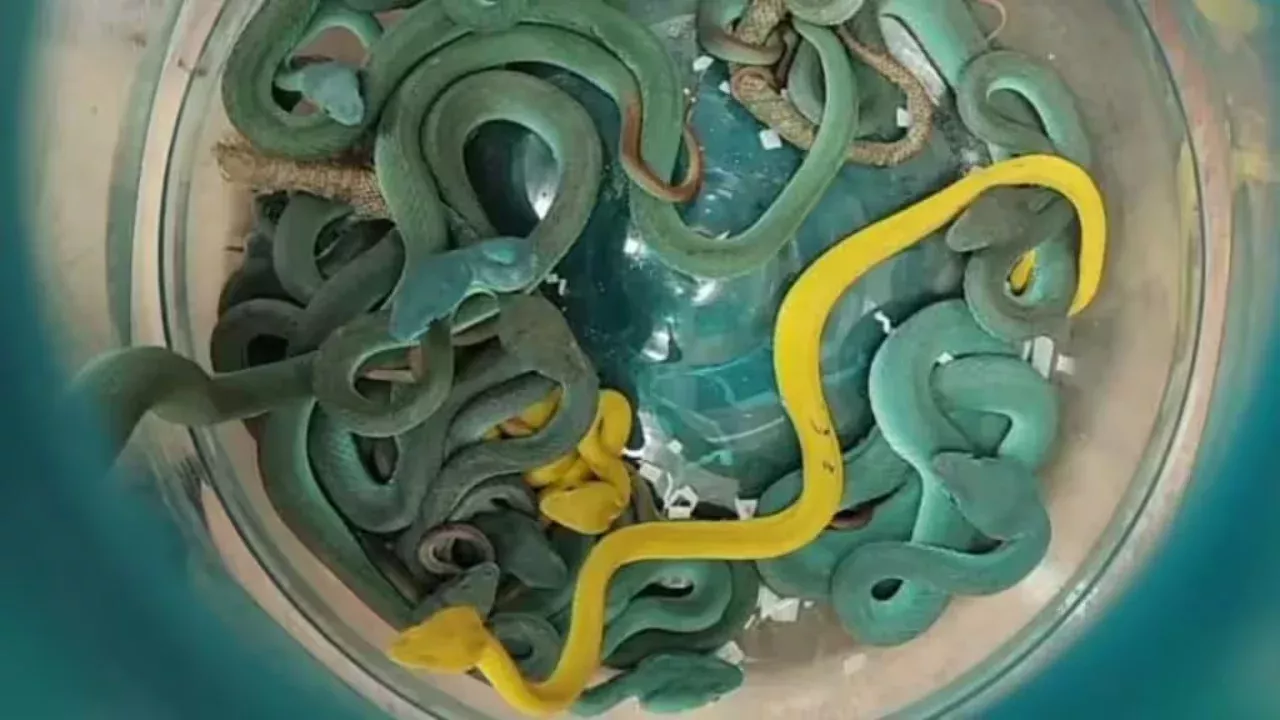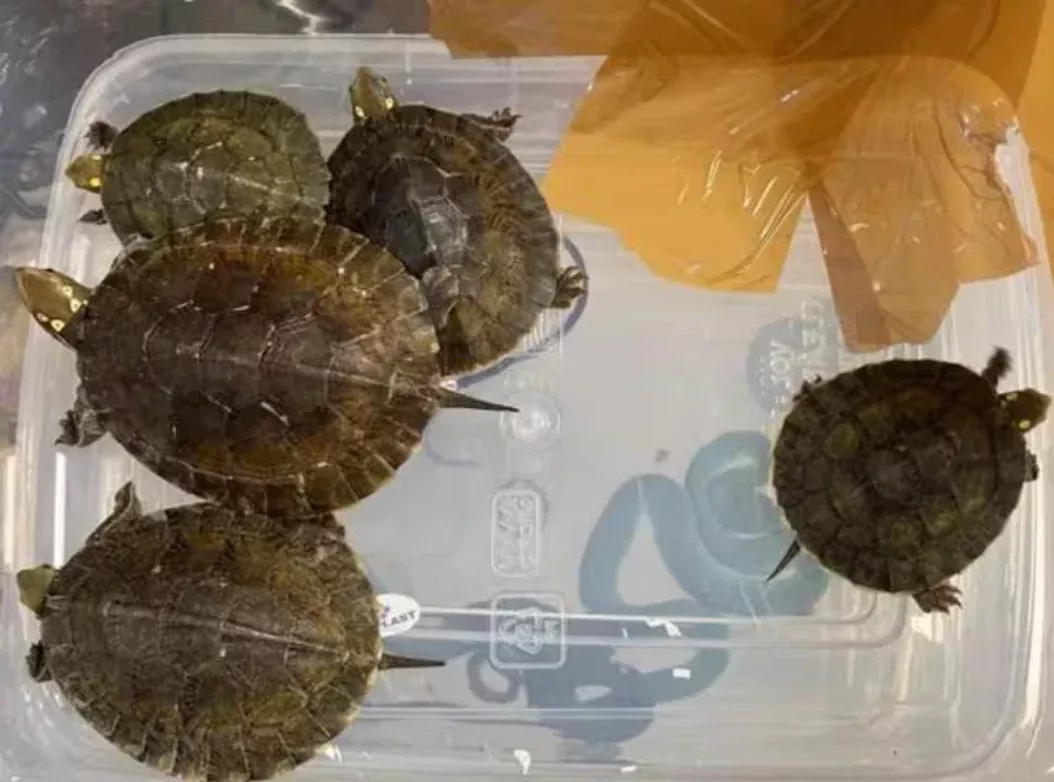
A very rare and dangerous situation was reported in India — border services at Mumbai International Airport apprehended a passenger attempting to smuggle 47 poisonous snakes. This was reported by the British BBC agency.
Reptiles in a full suitcase
The incident occurred on June 1 at Chhatrapati Shivaji International Airport in Mumbai. When the luggage of a passenger arriving from Thailand was scanned, it was found to contain 47 snakes and 5 turtles. Notably, among the confiscated snakes, there were extremely venomous and rarely found species in the world.

The customs service reported that three of the snakes belong to the colubrid family, five are Asian turtles, and the remaining 44 are species that are widespread in Indonesia but cannot be legally imported into India.
The passenger was arrested, identity kept confidential
The name of the lawbreaker has not been officially disclosed, but he is currently being held by law enforcement agencies. During the investigation, he is expected to answer questions about where and how he obtained these reptiles, as well as his intentions for bringing them into India.
The law is strict: Animals are protected
Wildlife protection laws in India are very strict. It is strictly prohibited to import endangered or protected species into the country without permission. Heavy fines and criminal liability are imposed for such actions.
Experts are warning
Ecologists and biology specialists emphasize that such illegal activities pose a serious threat not only as a violation of the law but also to the biological balance of the country. The mixing of endemic species or the spread of harmful organisms can lead to unforeseen consequences for the local environment.
Conclusion
This incident at Mumbai airport once again demonstrated the priority of the rule of law in protecting India's natural resources. The illegal importation of reptiles is assessed not only as a personal interest but also as a serious crime against nature. The results of the investigation will undoubtedly interest the wider public.